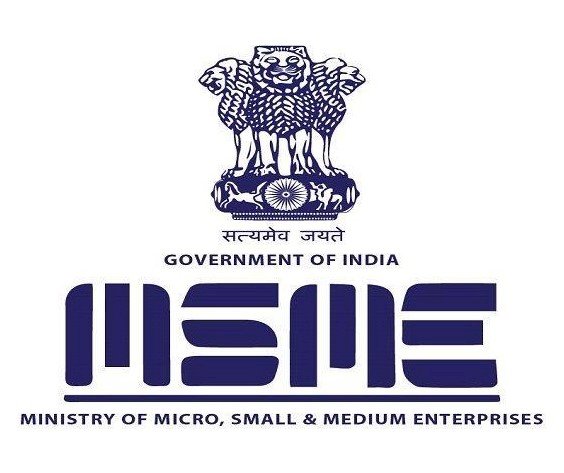Understanding MSMEs: The Backbone of the Economy
Micro, Small, and Medium Enterprises (MSMEs) play a crucial role in driving economic growth, generating employment, and fostering innovation. In many countries, particularly in developing economies, MSMEs are often referred to as the backbone of the economy due to their significant contribution to GDP, job creation, and export earnings. This article explores the importance of MSMEs, the challenges they face, and the strategies needed to support their growth and sustainability.
What are MSMEs?
MSMEs are classified based on their investment in assets and the number of employees. While definitions may vary by country, a typical classification includes:
- Micro Enterprises: Businesses with investments of up to $50,000 and fewer than 10 employees.
- Small Enterprises: Businesses with investments between $50,000 and $1 million, employing between 10 to 50 people.
- Medium Enterprises: Businesses with investments between $1 million and $5 million, employing between 50 to 250 people.
This classification helps governments and organizations develop targeted policies and support mechanisms to foster growth in these sectors.
Importance of MSMEs
Economic Contribution
MSMEs significantly contribute to a country’s economic development. They account for a substantial portion of GDP, especially in emerging economies. For instance, in India, MSMEs contribute approximately 30% of the GDP and are vital in boosting the industrial sector. Their presence stimulates economic diversification and helps reduce regional disparities.
Employment Generation
MSMEs are major employers, often providing job opportunities to a large section of the population. They are particularly important for women and marginalized groups, offering flexible work environments and empowering individuals. In many countries, MSMEs employ more than 70% of the workforce, making them a key driver of employment generation.
Innovation and Entrepreneurship
MSMEs are often hubs of innovation, contributing to the development of new products and services. Their smaller size allows for agility and adaptability, enabling them to respond quickly to market demands and technological advancements. Moreover, MSMEs foster entrepreneurship, encouraging individuals to start their own businesses and contribute to economic dynamism.
Export Promotion
MSMEs play a critical role in promoting exports, enhancing a country’s competitiveness in the global market. They often engage in niche markets and specialized products, making them important players in international trade. By boosting exports, MSMEs contribute to the country’s foreign exchange earnings and balance of payments.
Challenges Faced by MSMEs
Despite their significant contributions, MSMEs face numerous challenges that hinder their growth and sustainability:
Access to Finance
One of the biggest challenges for MSMEs is access to finance. Many small businesses struggle to obtain loans due to a lack of collateral, credit history, and formal documentation. This limited access to capital constrains their ability to invest in growth, technology, and infrastructure.
Regulatory Hurdles
Complex regulatory environments can be overwhelming for MSMEs. Compliance with various laws and regulations can consume time and resources, particularly for micro and small enterprises with limited administrative capacity. Streamlining regulations and providing support for compliance can help alleviate this burden.
Lack of Skilled Labor
MSMEs often struggle to find skilled labor due to competition from larger firms that can offer better salaries and benefits. This skills gap can hinder productivity and limit growth potential. Investing in training and development programs can help equip the workforce with the necessary skills.
Market Competition
MSMEs face fierce competition from larger corporations that benefit from economies of scale, established brand recognition, and greater resources. To survive, MSMEs need to differentiate themselves through innovation, quality, and customer service.
Strategies for Supporting MSMEs
To harness the potential of MSMEs and address the challenges they face, a multifaceted approach is required:
Access to Finance
Governments and financial institutions should develop tailored financial products and services for MSMEs, including microloans, grants, and credit guarantees. Promoting alternative financing options, such as crowdfunding and peer-to-peer lending, can also enhance access to capital.
Simplifying Regulations
Streamlining regulatory processes and providing clear guidelines can help reduce the compliance burden on MSMEs. Establishing single-window clearance systems can facilitate easier business registration and licensing.
Skill Development Programs
Investment in skill development initiatives is crucial for bridging the skills gap. Collaboration between educational institutions, industry associations, and government agencies can help create training programs that meet the specific needs of MSMEs.
Promoting Innovation
Encouraging innovation among MSMEs through research and development grants, incubators, and technology transfer programs can enhance their competitiveness. Providing access to technology and resources can help MSMEs adopt new practices and improve productivity.
Networking and Support
Creating networks and platforms for MSMEs to collaborate and share best practices can foster community support. Business associations, chambers of commerce, and government agencies can play a vital role in facilitating these connections.
Conclusion
Micro, Small, and Medium Enterprises are essential to economic growth, employment generation, and innovation. Addressing the challenges they face requires a concerted effort from governments, financial institutions, and society as a whole. By creating a supportive environment for MSMEs, we can unlock their potential and drive sustainable economic development.
For more articles on economic development and entrepreneurship, visit ITSparkMedia.


